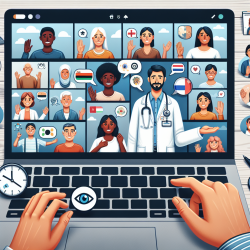Unlocking Leadership Potential: Insights from Graduate and Professional Education
In today's rapidly evolving professional landscape, the need for effective leadership skills extends beyond traditional discipline-specific knowledge. The recent research article, "Essential Leadership Concepts and Models for Graduate and Professional School Learners," provides a comprehensive exploration of leadership development opportunities for graduate and professional students. This blog post delves into the key findings of the study and offers actionable insights for practitioners seeking to enhance their leadership capabilities.
The Importance of Leadership Development
Leadership development is crucial for graduate and professional students as it equips them with the competencies necessary to navigate complex environments and assume leadership roles. The research highlights that leadership is not an innate trait but a skill that can be cultivated through structured programs and intentional practice. By integrating leadership concepts into academic curricula, institutions can prepare students for the multifaceted challenges they will face in their careers.
Key Approaches to Leadership Development
The study identifies several effective approaches to leadership development, emphasizing the importance of a multidimensional strategy. These approaches include:
- Curricular Integration: Embedding leadership training within the academic curriculum allows students to apply leadership theories in real-world contexts. Programs like the SELECT model in medical education demonstrate the benefits of integrating leadership with core disciplinary knowledge.
- Co-curricular Activities: Engaging students in leadership roles within student organizations, service-learning projects, and interdisciplinary teams fosters practical leadership experience. The Pre-Doctoral Leadership Development Academy at Rutgers University is an exemplary model of such initiatives.
- Interdisciplinary Collaboration: Encouraging students to work across disciplines enhances their ability to address complex problems with diverse perspectives. This approach is particularly valuable in fields like healthcare, where interdisciplinary teamwork is essential.
Benefits of Leadership Development
Leadership development offers numerous benefits for graduate and professional students, including:
- Enhanced Professional Identity: Leadership training helps students develop a strong sense of professional identity, enabling them to define their roles and contributions within their chosen fields.
- Transferable Skills: Leadership programs cultivate skills such as effective communication, critical thinking, and teamwork, which are highly valued across various industries.
- Preparation for Future Challenges: By equipping students with leadership competencies, educational institutions prepare them to tackle future challenges such as climate change, healthcare access, and technological advancements.
Implementing Leadership Development in Practice
For practitioners looking to enhance their leadership skills, the research suggests several actionable steps:
- Engage in Continuous Learning: Seek out leadership development programs, workshops, and seminars to continually refine your skills and stay updated on emerging leadership theories.
- Embrace Interdisciplinary Opportunities: Collaborate with professionals from different fields to gain diverse perspectives and enhance your problem-solving abilities.
- Reflect and Self-Assess: Regularly reflect on your leadership experiences and seek feedback to identify areas for improvement and growth.
In conclusion, leadership development is an essential component of graduate and professional education. By embracing the insights from this research, practitioners can enhance their leadership skills and contribute more effectively to their organizations and communities.
To read the original research paper, please follow this link: Essential leadership concepts and models for graduate and professional school learners.










